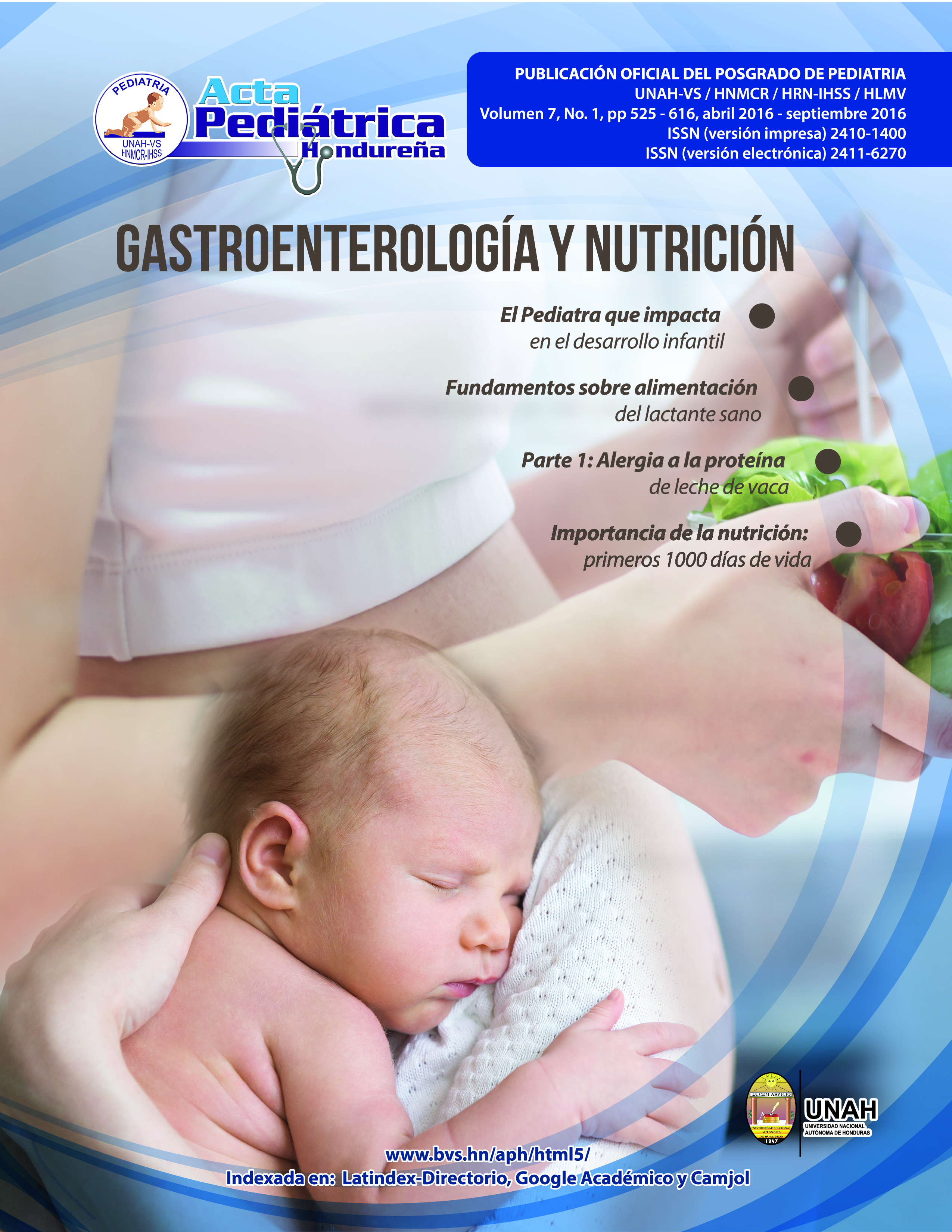Feeding Practices in Infants at the Dr. Mario Catarino Rivas National Hospital
DOI:
https://doi.org/10.5377/pediatrica.v7i1.6927Abstract
Background: The feeding development is a learned progression of behaviors that depend on both the structural-neurological integrity and the temperament of the individual and their environment. The primary goal of feeding is the acquisition of nutrients for optimum growth, and the acquisition of proper motor skills and eating habits. Objective: to identify feeding practices and nutritional status of children under 24 months of age at the HNMCR. Patients and methods: An analytical descriptive study in children younger than 24 months of age admitted to the Dr. Mario Catarino Rivas National Hospital (HNMCR) from April to May 2016. A sample of 148 subjects was obtained. Results: 75% of the children received breast milk eather exclusively or non-exclusively during an average of 4 months. Inadequate breast milk substitutes were used in 36% as a grandmother advice or mother's own decision. Precocious ablation was initiated in 23 (16%) subjects and early feedings in 40% (n = 64). 13% started with Maggie soup or bean soup. Children were exposed before 12 months of age to orange (56%), pineapple (21%), butter (59%) and cheese (48%) among others. 36.5% had nutritional problems. The probability of having nutritional problems is 2 times higher with precocious ablation and the use of whole milk. Conclusions: feeding practices in infants at the HNMCR are inadequate, incomplete, and insuficient.
Keywords
Breast feeding, feeding methods, food habits
Downloads
969

